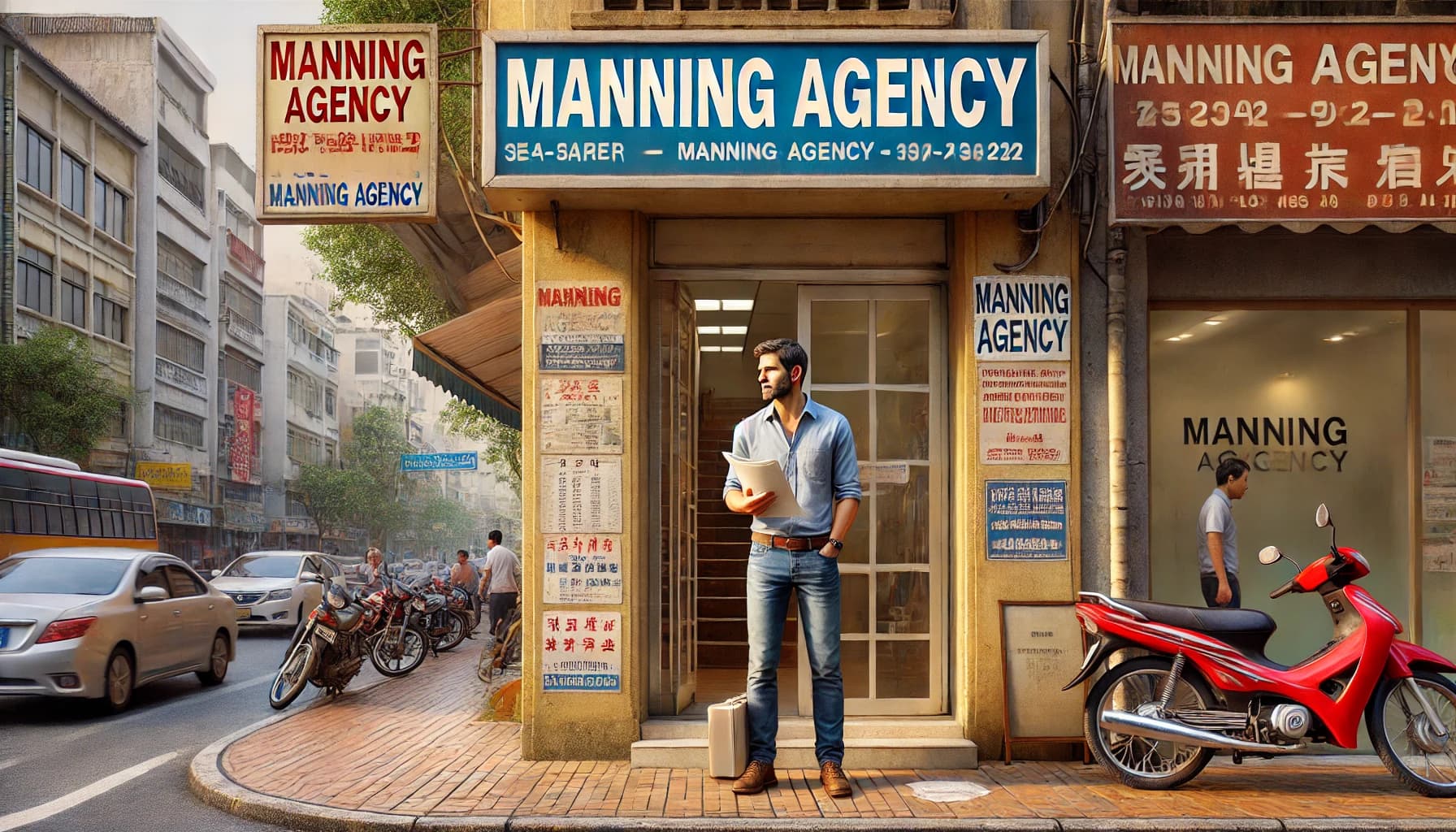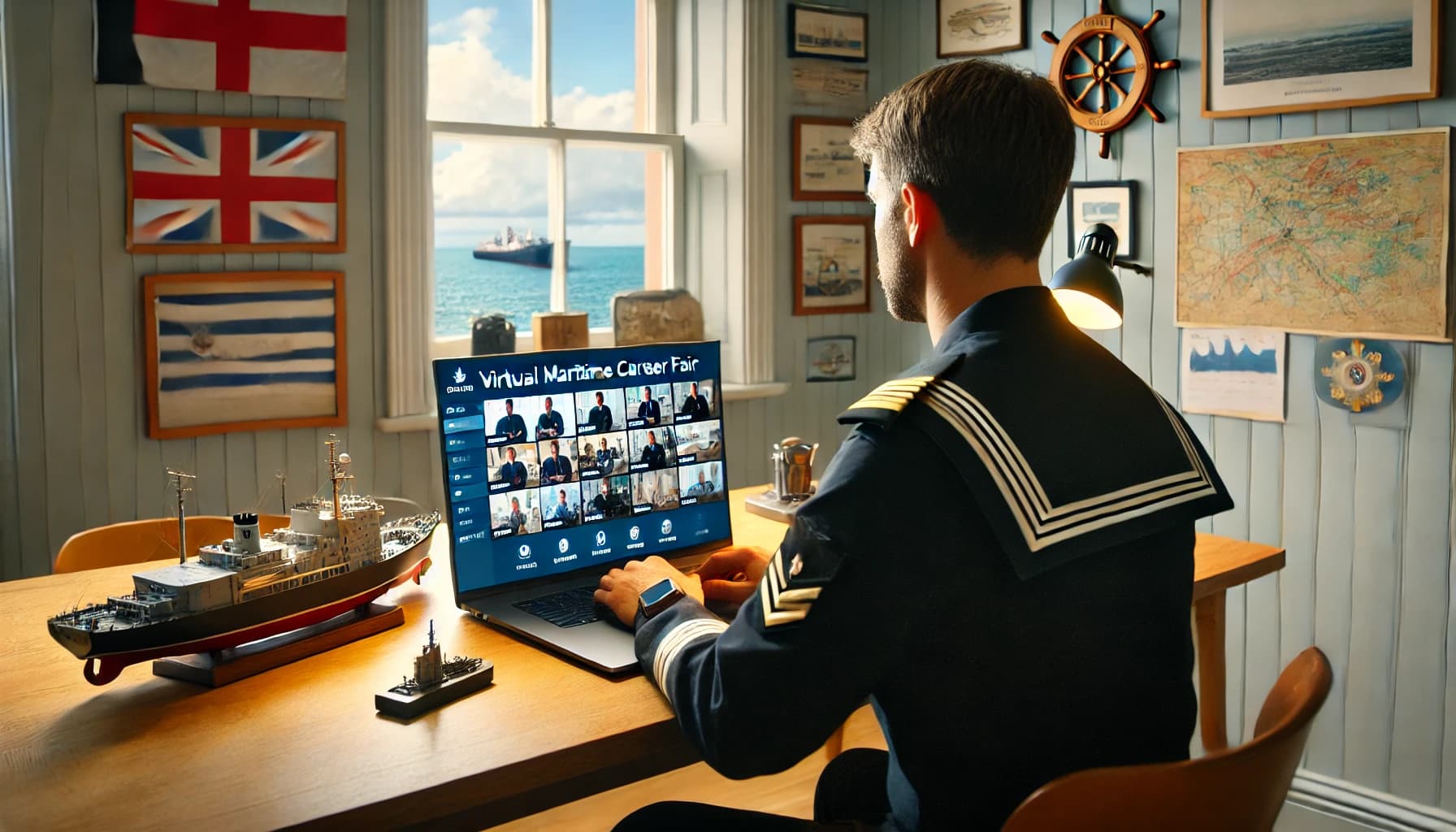Writing a seafarer resume - actually writing any resume - is never something the vast majority of people sit down to do with a smile on their face. It’s time consuming, it can be tricky to know what to include and what to leave out, and checking for spelling mistakes and grammatical errors can be a real headache.
But if you want to line up your next seaman job you need to know what to look out for. That’s why we’re telling you about 10 big mistakes that people often make when they’re writing their resume for a seafarer.
After all, competition can be fierce when you’re applying for maritime jobs and you want to make sure that the resume for a seaman you email over to maritime recruitment agencies, crew managers and manning agents is the best it possibly can be!
We’ve covered the basics of how to write a maritime resume before, so if you’re really starting out from scratch and looking to kickstart your career and search for jobs at sea, it would be well worth your time taking a look at that article first.
And whether you’re a deck cadet who is fresh out of maritime academy or you’re an old sea hand who has been working in chief engineer jobs for years, it’s always well worth knowing how to write a maritime resume.
A great seafarer resume can help you get your foot in the door for maritime jobs when you’re just starting out. And a not so great one could be the reason why you’re getting passed over by employers and maritime recruitment agencies for jobs at sea that you know you’d be a great fit for.

There are a number of things to avoid when writing a resume for a seafarer including not showing off and not using cliches, but we’re going to focus on 10 basics.
So let’s get down to the cold hard facts and take a closer look at 10 things that you really shouldn’t be putting on your resume for a seafarer.
Big mistakes not make in your seafarer resume - and their solutions
The mistake: Not making sure that your spelling and grammar are correct. We know you’re applying for maritime jobs and not a desk job where you’ll be writing emails and correspondence all day, but these sorts of errors will still jump off the page to a recruiter.
The solution: Check and double check (and even triple check while you’re at it) to make sure your spelling and grammar are correct.
And no matter how proficient you are in your native language or in English, it is always well worth asking someone you trust to take another look over your seafarer resume with a fresh pair of eyes. A friend, coworker, lecturer at your school or maritime academy, or family member will be happy to help.
Remember: In seafaring, attention to detail is key!
The mistake: Including salary information such as your previous salaries, your expected salary for this position, as well as any reasons why you left your former company.

The solution: Leave salary and reasons for leaving your previous company off your maritime resume altogether. If you include salary info it looks like you’re only interested in the money. (Yes we know everyone wants to be paid for the work they do, but that’s a given.)
If you include reasons why you no longer want to work with a former shipping company it might look like you’re a difficult employee. All of these things can be discussed if and when you progress to the next stages of the recruitment process.
Related: Why Trash Talking Former Employers on Your Maritime Resume is a No-No
The mistake: The dates of your education and/or previous jobs at sea and contracts don’t add up.
The solution: Again, like your spelling and grammar, there’s no shortcut for this. You need to double check that your dates make sense. If there are huge gaps between contracts (shore leave aside) or your contract dates overlap, employers and maritime recruitment agencies WILL spot them.
If there are genuine reasons why you had to take time off from working for any reason, a very brief explanation will be fine.
Read more: Why Lying on Your Seafarer Resume will Always Backfire
The mistake: Including waaaay too much information. Or, including way too little. A recruiter won’t sit down and read five pages of a seafarer resume, no matter how impressive the information in it is.
And a resume for a seafarer with only a couple of lines printed on it won’t be taken seriously when applying for vacancies for seamen.

The solution: If you have lots and lots of work experience, only list the most important or most recent jobs you’ve had. For example if you’re a chief officer with 15 years in the job, employers or maritime recruitment agencies don’t need to know about your first ever job as a cadet.
If you’re at the other end of the scale and don’t feel you have enough to say, you can always pad your resume out with achievements, specialist skills, volunteer work, courses taken, and certifications gained.
The mistake: Forgetting to include your contact details or including an unprofessional email address.
The solution: Simple - include your name, telephone number(s), Skype ID, address, and email address. And make sure your email address is professional. That email you’ve had since you were a teenager, cooldude1992@mailbox.com doesn’t really look that great in a professional document!
There’s no need to get rid of your email address, simply set up another email account using your name or even your rank as the address - AB.smith@mailbox.com - and use it just for your maritime job applications and messages.
The mistake: A poor personal summary. This should be the section that is right at the top of your resume for a seaman so you need to make it snappy and draw the reader in. It should be personal to you - don’t just state that you’re someone looking for vacancies for seamen.
The solution: Include 2 to 3 sentences detailing your current working situation - for example if you’re actively looking for jobs at sea or are currently under contract.
Include the level you are certified to, and your career aims. It’s okay to mention your accomplishments here too. For example: “An experienced chief cook with a track record in creating menus with a focus on nutrition.”

The mistake: Not being specific. Of course, anyone reading your seafarer resume who works at one of the maritime recruitment agencies or shipping companies will know what is involved in able seaman, chief engineer, master, marine electrician or OOW jobs.
And while this isn’t a mistake as such, it will help your resume stand out if you go one step further and not just state the obvious.
The solution: Instead of simply noting down your rank, mention how you also train and supervise fellow crew, if relevant. Or make a note of something extra you’ve achieved: perhaps you were promoted to your current rank recently.
Adding more details will be more likely to get the recruiter’s attention and make them want to pick up the phone and schedule an interview with you.
The mistake: Lying. Telling half truths. Exaggerating facts. You might be one of the most honest people you know but are tempted to help your seaman resume stand out by just embellishing the truth a little.
It’s not worth the risk, especially when applying for jobs at sea where you MUST hold the qualifications and documents that you say you have.
The solution: Don’t lie! Don’t exaggerate and don’t stretch the truth when writing a resume for a seafarer. Maritime recruitment agencies and employers WILL run background checks and if you’re caught out it’s not going to bode well for your future career in seafarer jobs. Stick to the truth - always.

The mistake: Making your seafarer resume difficult to read. If it’s painful to look at and hard to decipher, it’s going to get tossed aside by employers and maritime recruitment agencies.
Statistics show that recruiters only spend around 7 seconds looking at a resume before deciding whether they are interested in you or not.
The solution: Stick to the same font (style of text) and don’t capitalize words to make them stand out. Definitely don’t use emojis or symbols such as stars or arrows. They’re distracting and will be more likely to give a hiring manager a headache than make them want to contact you!
Show your seafarer resume to a coworker, friend or family member to see what they think before you send it out.
The mistake: Being negative about former employers. There can’t be many of us who haven’t had a bad or incompetent manager, supervisor or superior at some point in our careers, no matter whether we work in shore based maritime jobs or seafarer jobs.
But no matter how awful this person was, do NOT be tempted to bad mouth them in your resume for a seafarer. It will not impress a potential employer.
The solution: Even if your criticism is 110% justified, being negative about a job or employer will only make you look bad. It’s not professional and it can even make it look as if you are someone who might be problematic to employ. The rule of thumb is to leave negativity off your seafarer resume entirely. It’s that simple.
So there you have it: 10 big mistakes not to make on your resume for a seafarer. Hopefully if you bear these in mind you’ll be able to create a seaman resume that makes you look good and shows you as the hardworking and qualified seaman that you are.
And with any luck, once your resume is in great shape you’ll start getting more calls to attend a Skype or Zoom interview or perhaps an interview in person.

Need some tips on how to deal with interviews for maritime jobs? We have you covered here.
Martide helps you line up jobs at sea
At Martide we make it simple for seafarers to find and apply for maritime jobs. All you need to do is register an account with us and complete your seafarer profile (it’s like an online maritime resume) and you’ll then be able to search our vacancies for seamen.
Plus if you want to make life even easier, download the Martide mobile app. It’s free for seafarers and will give you anytime, anywhere access to our jobs, plus any messages from manning agents and employers.
Get the app now from Google Play for Android or the Apple App Store.
We hope to see you onboard very soon!
This blog post was originally published on January 10th 2020 and updated on September 4th 2023.

Eve Church
Eve is Martide's content writer, publishing regular posts on everything from our maritime recruitment and crew planning software to life at sea. Eve has been writing professionally for more than two decades, crafting everything from SEO-focused blog posts and website landing pages to magazine articles and corporate whitepapers.
UK

is the only site for maritime jobs




